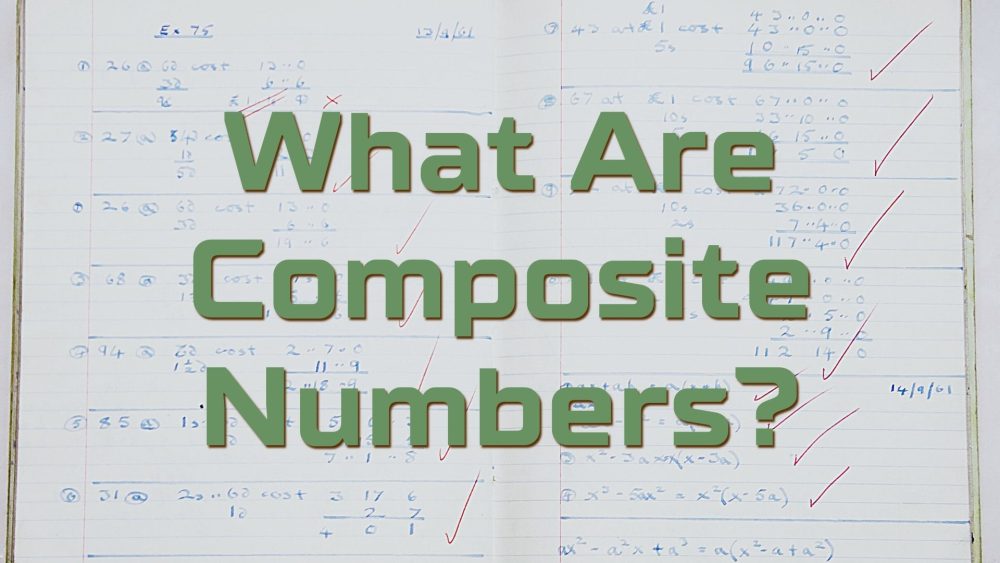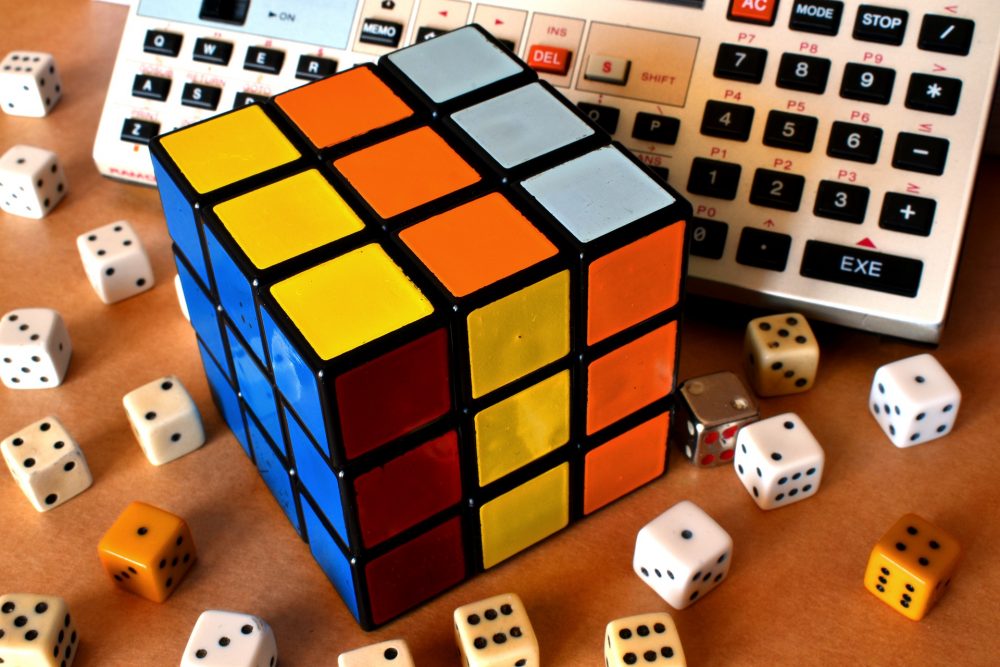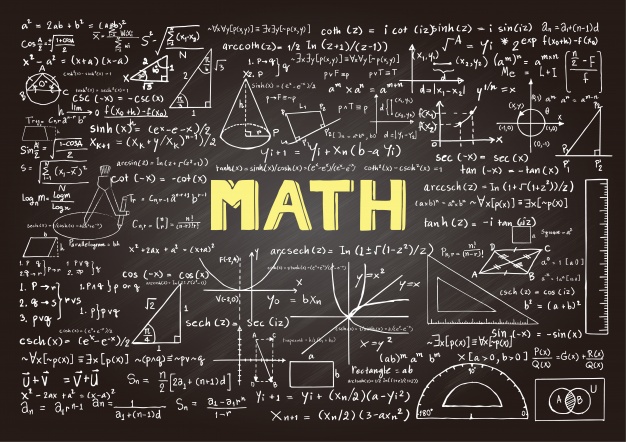Your kid might have been asked to define composite numbers or you might just be here to understand what composite numbers are. Here are a couple of simplified composite numbers definitions to help you understand the concept of composite numbers. It’s much easier than studying physics, for example.
What Is A Composite Number?
So what exactly makes a composite number what it is? Here are some criteria to make the composite number definition a little clearer.
- A composite number can be defined as a positive whole number that can be formed by multiplying two other smaller positive whole number.
- A composite number can also be defined as a whole number that can be formed by multiplying two or more other whole numbers. For example, the number 8 can be formed by multiplying 4 and 2. Therefore, 8 is a composite number.
- A composite number is a positive whole number which is divisible by one or more other whole numbers besides 1 and itself without leaving any remainder. For example, 12 is a composite number as it can be divided perfectly by 2,3,4, and 6 without leaving a remainder.
- A composite number can also be defined as an integer that is a multiple of two or more whole numbers other than 1 or itself.
Here are examples of composite numbers. This is a list of composite numbers from 1 to 100:
4, 6, 8, 9, 10, 12, 14, 15, 16, 18, 20, 21, 22, 24, 25, 26, 27, 28, 30, 32, 33, 34, 35, 36, 38, 39, 40, 42, 44, 45, 46, 48, 49, 50, 51, 52, 54, 55, 56, 57, 58, 60, 62, 63, 64, 65, 66, 68, 69, 70, 72, 74, 75, 76, 77, 78, 80, 81, 82, 84, 85, 86, 87, 88, 90, 91, 92, 93, 94, 95, 96, 98, 99, 100.
What Is The Difference Between Prime And Composite Numbers?
Every whole number in this world falls under one of these categories. All numbers are prime, composite, or unit. So, every whole number that is not prime or unit is composite.
What are the prime and unit numbers? A prime number is a whole number that is neither composite or unit. By definition, a prime number is a number that only has two divisors, 1 and itself. Simply put, it is a number that can be formed by multiplying only 1 and itself. It can not be formed by multiplying other numbers other than 1 and itself. Examples are 7, 2, 11, etc.
On the other hand, a unit number is a basis upon which every other number is formed be it whole numbers, complex numbers, or fractions. There is only one number on this list and it is 1. Every other numbers are simply multiples of 1. 1 is a unit number so it is neither prime nor composite.
Composite Numbers List (1-200)
To further help you understand the concept of prime and composite numbers, here is a list of composite numbers from 1 to 200. If you want an extensive list covering a wider range of numbers, you can use the prime and composite numbers chart available online which would list composite numbers and all prime numbers within your specified range.
4, 6, 8, 9, 10, 12, 14, 15, 16, 18, 20, 21, 22, 24, 25, 26, 27, 28, 30, 32, 33, 34, 35, 36, 38, 39, 40, 42, 44, 45, 46, 48, 49, 50, 51, 52, 54, 55, 56, 57, 58, 60, 62, 63, 64, 65, 66, 68, 69, 70, 72, 74, 75, 76, 77, 78, 80, 81, 82, 84, 85, 86, 87, 88, 90, 91, 92, 93, 94, 95, 96, 98, 99, 100, 102, 104, 105, 106, 108, 110, 111, 112, 114, 115, 116, 117, 118, 119, 120, 121, 122, 123, 124, 125, 126, 128, 129, 130, 132, 133, 134, 135, 136, 138, 140, 141, 142, 143, 144, 145, 146, 147, 148, 150, 152, 153, 154, 155, 156, 158, 159, 160, 161, 162, 164, 165, 166, 168, 169, 170, 171, 172, 174, 175, 176, 177, 178, 180, 182, 183, 184, 185, 186, 187, 188, 189, 190, 192, 194, 195, 196, 198, 200
Prime Numbers List (1-200)
Having stated earlier that all whole numbers are either unit (1), composite or prime. So, we can conclude that every other whole number excluded from this list aside 1 is a prime number. To buttress my point, here is a list of prime numbers from 1 to 200.
2, 3, 5, 7, 11, 13, 17, 19, 23, 29, 31, 37, 41, 43, 47, 53, 59, 61, 67, 71, 73, 79, 83, 89, 97, 101, 103, 107, 109, 113, 127, 131, 137, 139, 149, 151, 157, 163, 167, 173, 179, 181, 191, 193, 197, 199.
So, you will notice that every number on this list can only be divided (without leaving a remainder) by 1 and itself. Also, no number in this list appears on the list of composite numbers from 1-200 above. Likewise, you will notice that number 2 is the only even number in the prime number category on the prime and composite numbers list above. So, you might be wondering, are all even numbers composite? Yes, all even numbers are composite numbers excluding 2.
In Brief
We have demystified the concept of composite and prime numbers and here is a summary of what we discussed; what are composite numbers, what are prime and composite numbers, what is the difference between composite and prime numbers, and we also gave a comprehensive list of composite and prime numbers. These have been summarized by assignment experts as few points below which you can also use as a cheat sheet anytime you need to reference it.
- All whole numbers are either unit, composite, or prime numbers.
- 1 is the only unit number and it is neither prime nor composite.
- No prime numbers are composite and vice-versa.
- All even numbers excluding 2 are composite numbers.
- The number 4 is the smallest composite number while the number 2 is the smallest prime number.
Get Math Help Today
You might now understand composite numbers, especially after getting acquainted with composite number examples, but there are many mathematical concepts remaining to fully understand. Doing math or algebra homework is not easy, and sometimes it is okay to ask for help. If you need professional help with more complicated problems, we advise you to contact our math homework help service. Our trustworthy experts will do your homework in no time, and you will be satisfied and your grades will be perfect.














